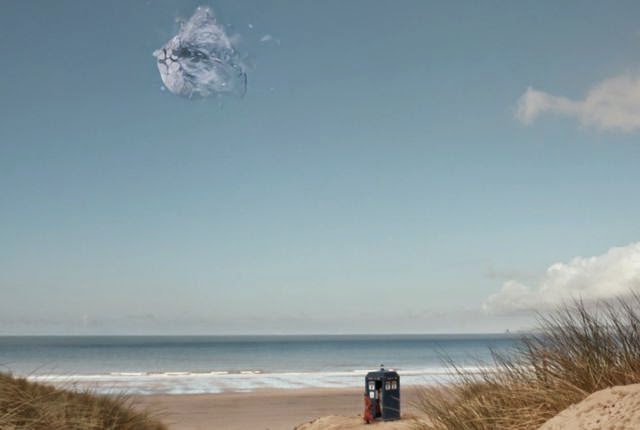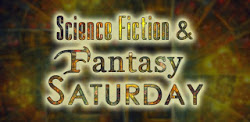
I've got to admit I've
not been a great fan of Newu Who. I first watched Doctor Who when Jon
Pertwee was the Doctor, and I've always thought of him and Tom Baker
as being “my” Doctors. I've got a pretty good collection of
classic Who on DVD, and in the main I prefer the original series to
the current stories. There have been a few exceptions – there are
about half a dozen New Who stories that I thought were very good
indeed, including Empty Child, Blink and the Doctor's Wife. I also
think there have been some absolute stinkers.
I was one of those who
thought David Tennant was too brash and Matt Smith too young. To be
fair, I don't think either was a bad Doctor, but neither really
matched the ideal of the time-travelling Gallifreyan that I had in my
mind.
Peter Capaldi, on the
other hand, struck me as a perfect choice for the Doctor. He had
sufficient gravitas and a strong screen presence, a face that was
reminiscent of Jon Pertwee, and very considerable acting ability.
The season started
pretty well. Deep Breath was a good story, but Into the Dalek (whilst
it had some very nice ideas and some very strong moments) had enough
logical flaws and plot holes to sink a starship. Robot of Sherwood
was great fun, but not great Who. It and Listen, the story that
followed, both seemed to suggest a degree of promise.
Time Heist, on the
other hand, was both obvious and illogical, and really didn't work.
The Caretaker, again,
seemed to be working, but still didn't quite have the spark that the
best Who stories have.
And then we had Kill
the Moon. Ouch. Probably one of the poorest stories I've seen. If
anyone doubted that New Who is fantasy, not science fiction, this was
a good proof. Classic Who endeavoured to put a gloss of “reality”
into the science. It often got it badly wrong (I cringe at the sad
excuse for astrophysics in Wheel in Space, and a good many of the
stories failed basic science, but certainly from Jon Pertwee's time
onwards the series tried to pretend it was SF not magic). Anyone with
no more than a GCSE in physics can see the flaws in the science of
Kill the Moon.

The Moon's “gravity is changing”. Because there's
something growing inside. Fluctuating. But mass can't change. So
gravity can't change. The basic structure was gibberish. And the
creature that is born from the Moon immediately lays an egg that is
of the same mass and is identical in appearance. And “bacteria”
that look like spiders and spin webs? How this story got approved is
beyond me – it fails on so many levels. And the Doctor leaving the
decision to the humans also makes no sense compared with what he has
done before. The logic of the character and the logic of the
situation are entirely absent. Yes, the production crew want to make
the Doctor darker and edgier, but he needs to remain the same
character as before. And the big “event” of the story – the
Doctor leaving Clara and co to make the decision – doesn't in the
end have any consequences, making it ultimately pointless. The ending
felt like a cop-out.
I don't mind saying
that this episode disappointed me very badly.

Fortunately, Mummy on
the Orient Express restored my faith in the series. I didn't expect
to like the episode – it looked somewhat as though someone had come
up with a neat image and a good title, and I was afraid the plot
would be an irrelevance. I am very glad I was wrong – the story
held together, the Doctor was magnificent, and the plot made sense.
I
didn't have problems with the science – yes, a starship built to
look like a steam-train in space is daft, but it doesn't obviously
break basic laws of physics. We've built some pretty bizarre ships
and vehicles in reality, and the attempt to create something
anachronistic for rich, paying passengers is not extraordinary. The
plot held together, and the characterisation of the Doctor finally
felt thoroughly right.

Which brings me to
Flatline. I enjoyed
Flatland many years ago. I was nervous of what
Doctor Who would do with it.
I needn't have worried.
This was an excellent episode, the internal logic consistent, the
plot credible (as far as Doctor Who plots are ever credible) and the
science not objectionable. And the character of the Doctor (both as
played by Capaldi and as brilliantly emulated by Jenna Coleman!) was
beautifully portrayed. This really felt like the “real” Doctor.
If the new series can keep this up, then New Who might just grow up
to be as good as its parent.












